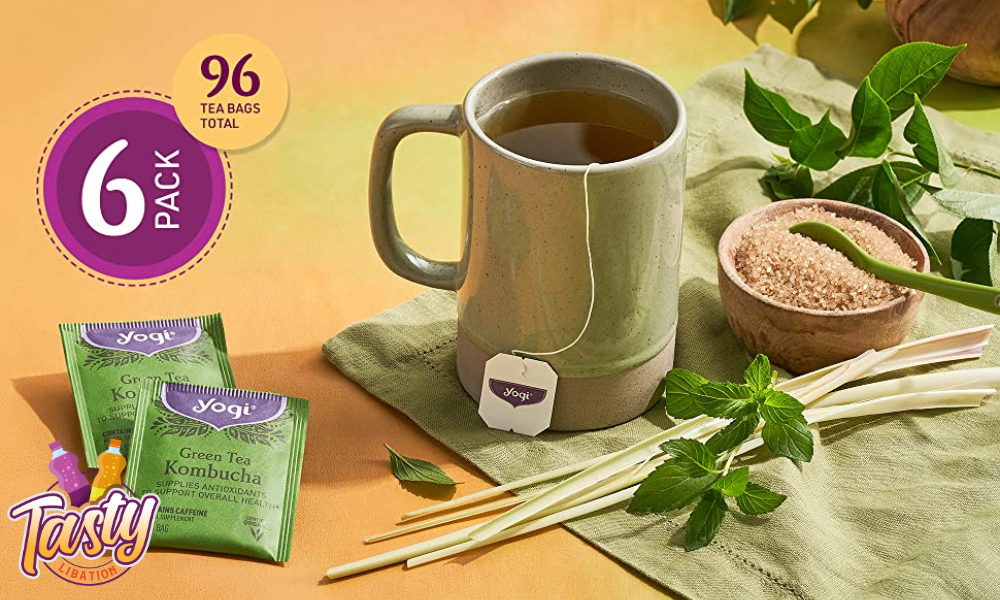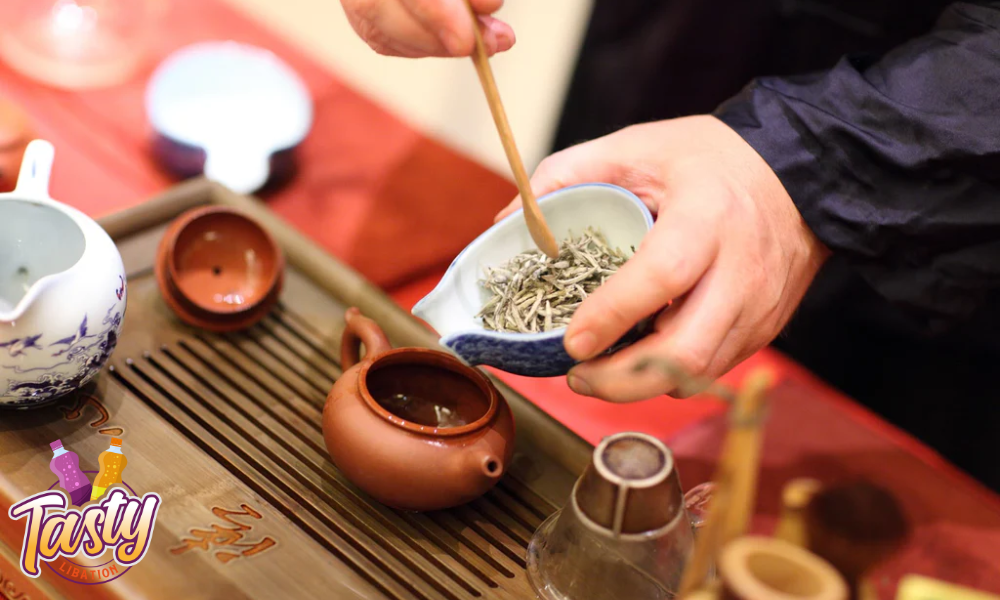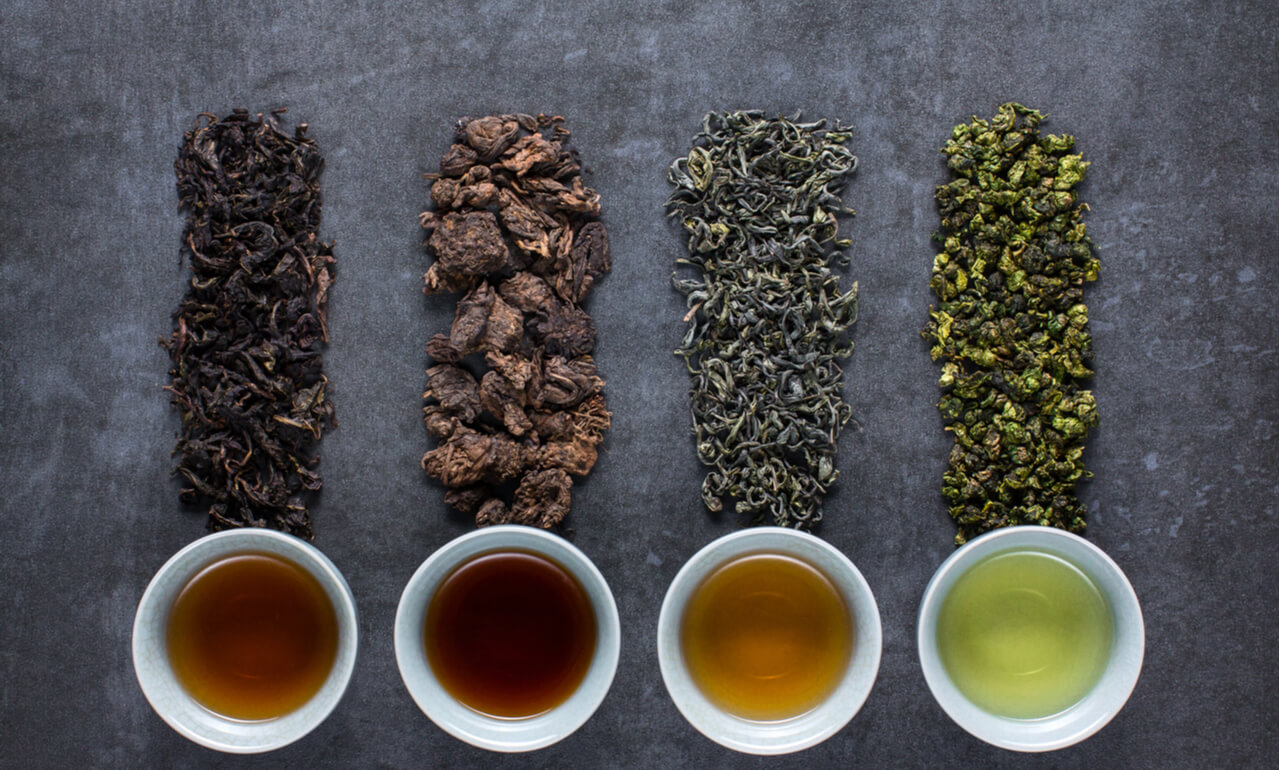Few things are as delightful as having a cup of tea, and we honestly can’t get enough of it. Ranked as the 2nd most consumed beverage in the world (after H2O, of course), tea practically has a whole fan club.
Typically, this drink originates from a plant called Camellia sinensis, but different harvesting and processing methods lead to different kinds of tea. And if you ask us, they’re all delicious in their respective ways.
Oh, and did we mention that the beverage has countless health benefits, too? It can cure just about anything, and there’s even a lot of science to back it up. What’s not to love, really?
If you’ve ever explored the tea aisle at a grocery store (great choice, by the way), you’ve probably come across several types of tea. And truth be told, it can get pretty overwhelming.
But hey, you don’t have to worry as long as we’re here. In this blog, we’ll give you the 411 on everything there is to know about the endless varieties of tea. Keep reading for answers to all of your questions! We won’t spare a single detail.
6 Main Types of Tea
Black Tea
Do we have any black tea lovers over here? Personally, we’re huge fans of this drink (and for a good reason, too).
According to the United States Tea Association, around 84% of the tea consumption in the country involves black tea. So, clearly, we’re not the only ones obsessed with this fantastic beverage.
Here’s what happens. After the initial harvest, the leaves are wilted, bruised, rolled, and oxidized. To elaborate, oxidation is a series of chemical reactions that contribute to the familiar smell and the signature brown color of tea.
As the leaves remain exposed to the air, enzymes break down the chemicals in them. And voilà! That’s the secret behind the aroma and appearance we all know and love.
If you like your caffeine, you’ll be happy to know that black tea contains more of it than most teas (2-4%, to be exact). And you’ll be even happier to know that caffeine is linked to mental alertness.
But hey, that’s not the only way you’ll benefit from this tea. You see, this incredible beverage is loaded with antioxidants: substances that combat free radicals and decrease cell damage. And science indicates that consuming drinks with antioxidant properties strengthens your overall health. Woohoo!
If we’re being specific, black tea contains a type of antioxidant known as polyphenols, which are said to improve gut health and reduce your risk of developing cancer.
Aside from polyphenols, the tea is also full of flavonoids, which can benefit heart health and decrease your chances of developing cardiovascular disease.
This doesn’t even scratch the surface of what’s possible if you add black tea to your diet. Other studies suggest that it can reduce blood pressure, cholesterol, and blood sugar levels. Need we go on?
The flavor is incredibly strong, too, so you’re winning in every department. It doesn’t get any better than this.
Green Tea
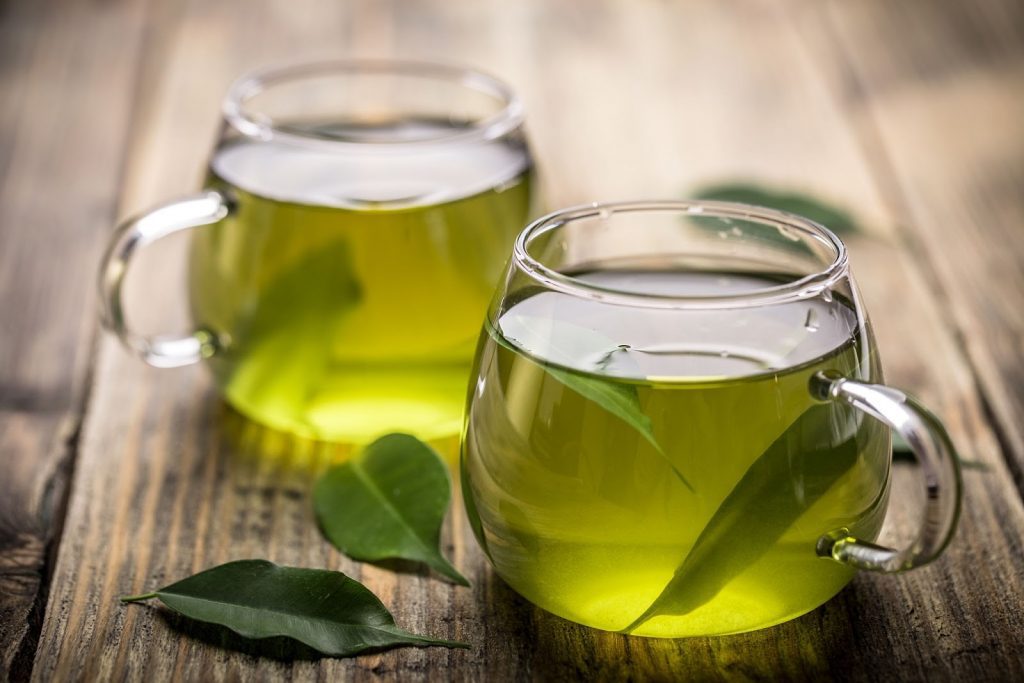
Chances are, you’ve probably heard a million people talk about the never-ending health benefits of green tea. And you know what? They’re not wrong.
For centuries, green tea has been used and adored for its medicinal purposes. From people in ancient China and India to individuals in the modern world, everyone agrees that this beverage is a real-life miracle.
Unlike black tea, green tea is not oxidized, and it is one of the least processed teas in the world. So, naturally, it has the most antioxidants, which can pave the way for great health.
Remember polyphenols? This marvelous drink is full of them, which means it can reduce inflammation and help combat cancer. Isn’t that amazing?
This would be a good time to mention catechins, the polyphenol compounds that prevent cell damage. You’ll be pleased to know that green tea contains a special catechin named epigallocatechin-3-gallate (EGCG), which can treat several diseases and protect your brain from aging.
But wait, we’re just getting started! The drink also contains L-theanine: an amino acid that increases dopamine and has anti-anxiety effects. This bad boy can even work synergistically with caffeine to enhance brain function. In short, there’s nothing this duo can’t do together.
On top of that, scientists believe that green tea can also reduce your chances of developing type 2 diabetes and heart disease. Oh, and if you were looking for an easy way to boost your metabolic rate and lose weight, this remarkable beverage is your new best friend.
See what the hype is about? Add green tea to your diet for life-changing (and delicious) results.
White Tea
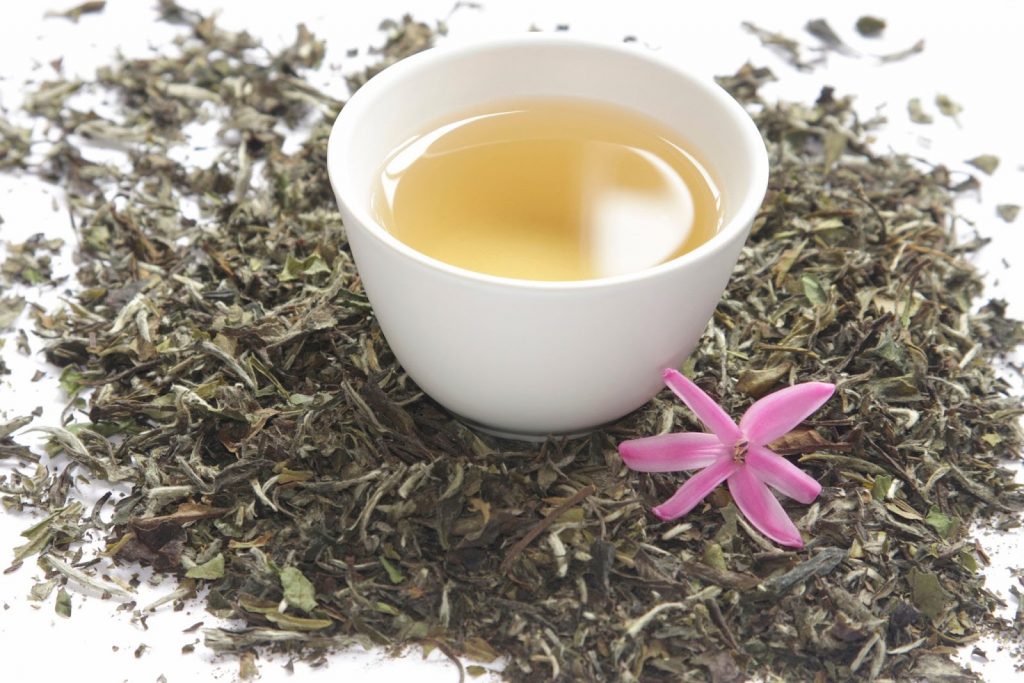
Ah, here’s another tea we just can’t get enough of. And once you’re done reading this section, you’ll understand why. Trust us.
Meet white tea: the new drink of your dreams. It’s made from the same Camellia sinensis plant we mentioned earlier, but the processing method is incredibly different (and unique).
You see, the leaves are picked right before they’re fully open, which is when they’re covered in small white hairs. And as you can probably tell, that is where the beverage gets its name. Isn’t that cool?
Now, let’s talk about everyone’s favorite part: the health benefits. By now, we’re sure you know all about antioxidants and their wonderful properties. Well, lucky for you, white tea is less processed than both black tea and green tea, which automatically means it has the most antioxidants. Yay!
Unsurprisingly, the drink is loaded with polyphenols. And as you know, these antioxidants can decrease inflammation, protect your body from free radicals, and reduce your risk of developing heart disease.
Similar to green tea, white tea contains both caffeine and EGCG. Together, this unstoppable duo can boost your metabolism and help you burn more fat than ever before.
Okay, now here’s something you probably didn’t know. White tea is an excellent source of fluoride and tannins. These two molecules, coupled with catechins, can protect your teeth from harmful bacteria. Woah.
The list of benefits just doesn’t end. On top of everything else we just mentioned, this beverage can also reduce insulin resistance and protect against osteoporosis, Parkinson’s disease, and Alzheimer’s disease.
Do you see why we’re such passionate white tea enthusiasts? One sip is all it takes to become a fan. Take our word for it.
Yellow Tea
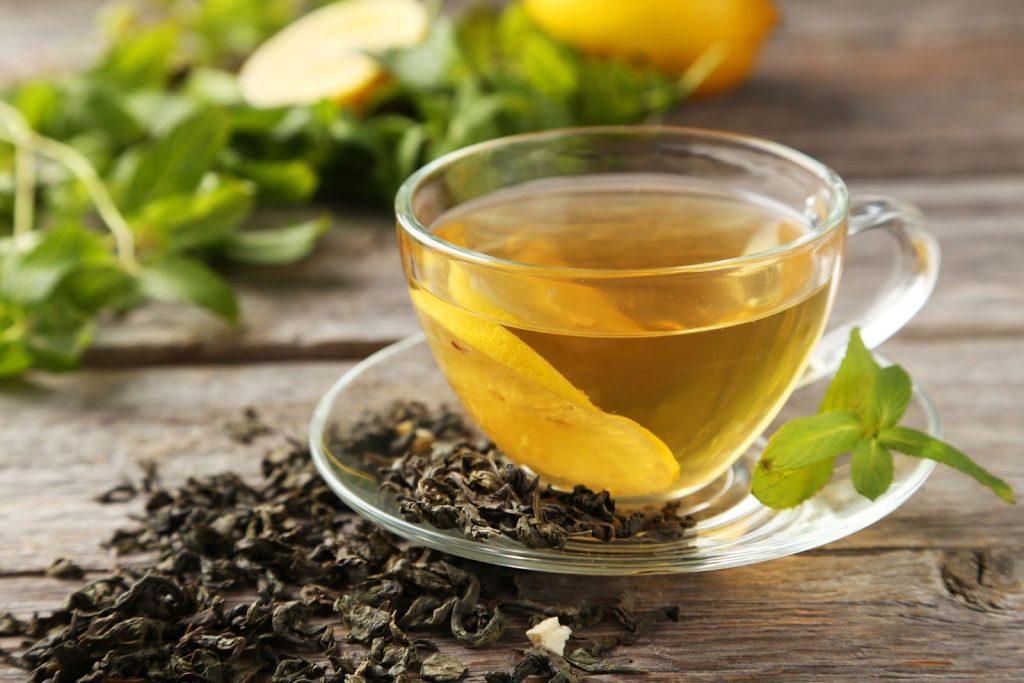
Doesn’t yellow just scream happiness to you? We don’t know about you, but it instantly gives us a major serotonin boost.
If you haven’t heard much about yellow tea before, that’s understandable. This beverage is one of the rarest kinds of tea in the world, but it’s definitely worth discussing.
With an origin that dates back to the Tang Dynasty in China, yellow tea comes from (you guessed it) the Camellia sinensis plant. Though the processing method is similar to that of green tea, there’s one extra step that sets it apart.
After its leaves are withered and panned, the tea goes through a special process known as wrapping, which causes non-enzymatic oxidation.
This craftsmanship is the reason behind yellow tea’s extremely smooth and creamy taste. It’s sweet, nutty, mellow, and pretty much everything good in the world. What’s not to like?
Plus, when it comes to health benefits, this drink has plenty. For starters, it contains a lot of polyphenols (no surprises there). And as you know, these antioxidants can delay aging, protect against heart disease and prevent cancer.
But wait, that’s not all these compounds can do. Studies indicate that polyphenols can help with certain gastrointestinal issues and non-alcoholic fatty liver disease, too. So, it’s kind of like magic if you think about it.
On another note, research suggests that yellow tea consumption can combat metabolic syndrome and ameliorate symptoms of type 2 diabetes. Interestingly enough, it can even help you lose weight and decrease your body mass index.
Impressive, right? Historically, this drink was always said to be luxurious. And if we’re being honest, it makes us feel like royalty, too.
Oolong Tea
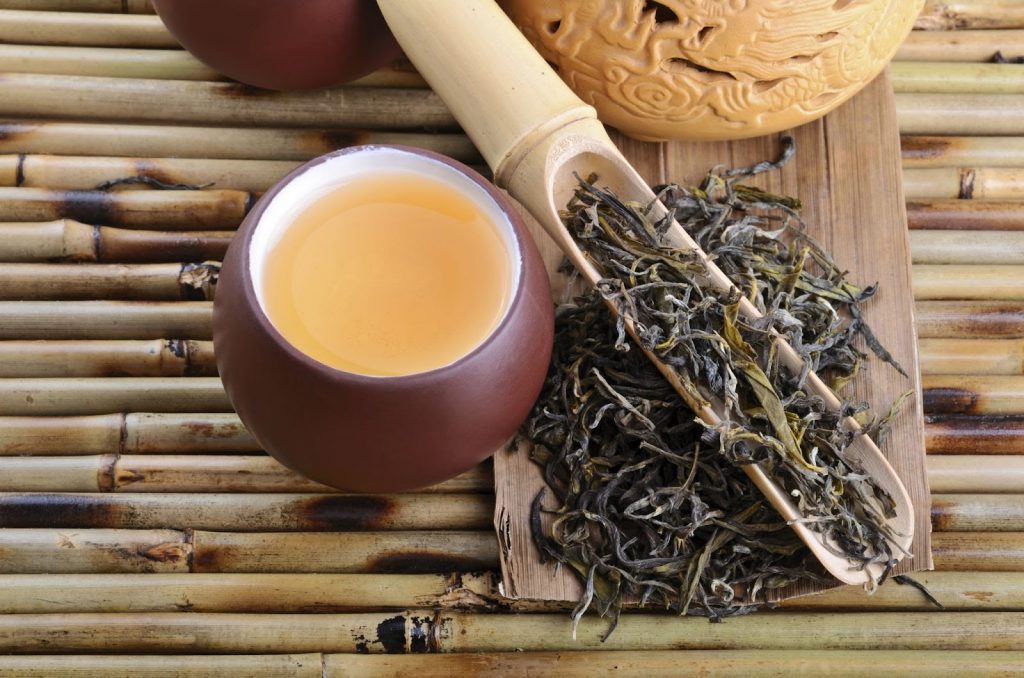
Who’s ready to discuss yet another delicious Chinese tea? We know we are.
Unlike black tea and green tea, this beverage is made from partially oxidized leaves. And you’ll be very happy to hear that it’s loaded with countless vitamins, minerals, and antioxidants. Ah, we can feel our bodies thanking us already.
Surprisingly, this excellent drink is only consumed by 2% of the world. But if you ask us, that number should be way higher. Everyone deserves to reap the benefits of a good ol’ cup of oolong tea.
And what’s so great about this drink, you ask? Well, as you can probably guess, it contains several polyphenol antioxidants. And we all know just how much these compounds can help with type 2 diabetes, bone health, weight loss, and cancer.
Now listen to this. In a study on Chinese individuals, those who drank 1-2 cups of oolong tea per day significantly reduced their risk of having a stroke. Similarly, a study on Japanese citizens found that men who consumed 8 ounces of the drink every day saw a 61% decrease in their chances of developing heart disease. Wow.
Aside from that, oolong tea can also relieve eczema. Yes, you heard that right! Scientists noticed significant improvements in the conditions of those who consistently consumed the drink. Isn’t that fascinating?
So, to sum it all up, oolong tea deserves your undivided attention. It might not be as popular as its counterparts, but it’s just as great.
Pu-erh Tea
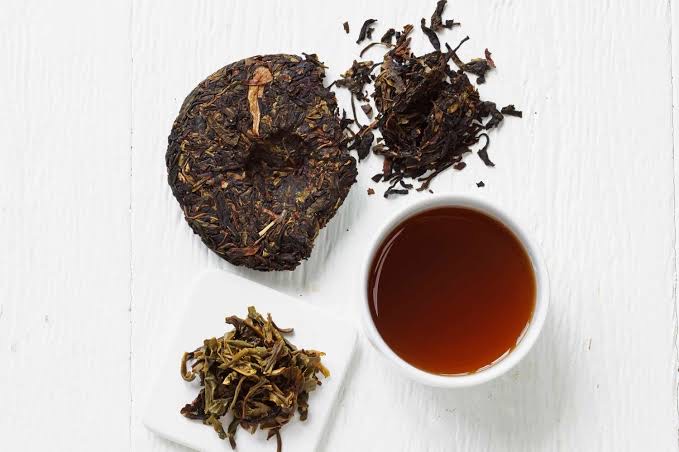
Last but certainly not least, let’s talk about pu-erh tea, yet another incredible Chinese tea. It’s safe to say that China is on a roll with these beverages. And honestly, we’re so here for it.
This drink is straight out of a fairytale. Seriously. What sets it apart from other similar beverages like kombucha is that the leaves themselves are fermented instead of the brewed tea.
Because the drink is fermented, it is naturally rich in probiotics: active bacteria in your body with the power to combat several health concerns. That’s right! Research suggests that this beneficial bacteria can improve your blood sugar control and also promote weight loss.
And, of course, the benefits don’t end there. Other studies showcase that pu-erh tea extracts can reduce cholesterol levels in multiple ways, which means you’ll have a lower chance of developing cardiovascular disease.
And because the drink can decrease fat accumulation, it can naturally prevent non-alcoholic fatty liver disease as well. Some studies show that these extracts may even inhibit cancer growth! How amazing is that?
Well, if you were looking for a sign to buy some pu-erh tea, this is it. We promise you won’t regret it.
Which Tea is the Best Quality?
As tea aficionados, we can confirm that the six types of tea you learned about in the previous section are all top-quality. And if you’re looking for some excellent brands, some of the most reputed ones that come to mind are Harney & Sons, Twinings, and Yogi. Yum.
Which Tea is the Best in Taste?
To be honest with you, taste is a very subjective matter. If you like your tea nutty, yellow tea is meant for you. And if you like your tea strong, black tea is sure to entice your taste buds. The good thing is that there’s a kind of tea for everyone!
Which Tea is the Healthiest?
Ah, tea really is the gift that keeps on giving. As you read earlier, all six types of teas come with their fair share of health benefits. So, if you want our opinion, pick whichever one appeals to you the most! There’s nothing to lose and so much to gain.
Which Tea is the Unhealthiest?
Okay, we hate to be the bearer of bad news, but the bubble teas and sweetened iced teas you get in stores are not healthy. They’re full of excessive calories and sugar, which are scientifically proven to have very negative effects on your body. Ouch.
To start, let’s talk about bubble tea, shall we? If you like spending your time on social media, you’ve probably seen this aesthetically pleasing drink everywhere. Made from tapioca pearls, this beverage is the hottest trend in town, but sadly, it’s also the unhealthiest.
To put things into perspective, a 16-ounce serving of bubble tea contains about 300 calories and 38 grams of sugar. Yikes.
It doesn’t take a rocket scientist to figure out that 300 is an alarming number. And the more calories you consume, the more weight you’ll gain.
But wait, that’s not the only problem. The 38 grams of sugar are also incredibly concerning. Unfortunately, sugar-sweetened beverages are linked to serious health issues, including heart disease, obesity, and type 2 diabetes.
Now, let’s talk about sweetened iced teas. Chances are, you’ve probably seen countless cans and bottles of them at the grocery store. And we know this isn’t what you want to hear, but these drinks aren’t doing you any good.
Let’s look at the nutritional value of a 16.9-ounce bottle of Arizona Sweet Tea:
- 170 calories
- 43 grams of sugar
Clearly, these numbers are worrying, and it’s safe to say that they’re a recipe for disaster.
If you’re looking for a guilty pleasure, we suppose you can drink a glass of bubble tea or iced tea now and then. But beware! Excessive consumption can have disastrous consequences. So, your best bet here is to keep your intake minimal.
Conclusion
Is anyone else just really craving tea now? We can’t possibly be the only ones.
Just thinking about this wonderful beverage brings an instant smile to our faces. And honestly, can you blame us? It tastes like heaven and has a long list of benefits. In short, it feels like a warm hug.
Whether you like fruity flavors or nutty notes, there’s genuinely a type of tea for everyone! That’s the thing about this magical drink. It has a way of winning you over without you even realizing it.
You know what time it is. Hop in the kitchen, or make your way to a nearby store! A beautiful cup of tea is calling your name.





